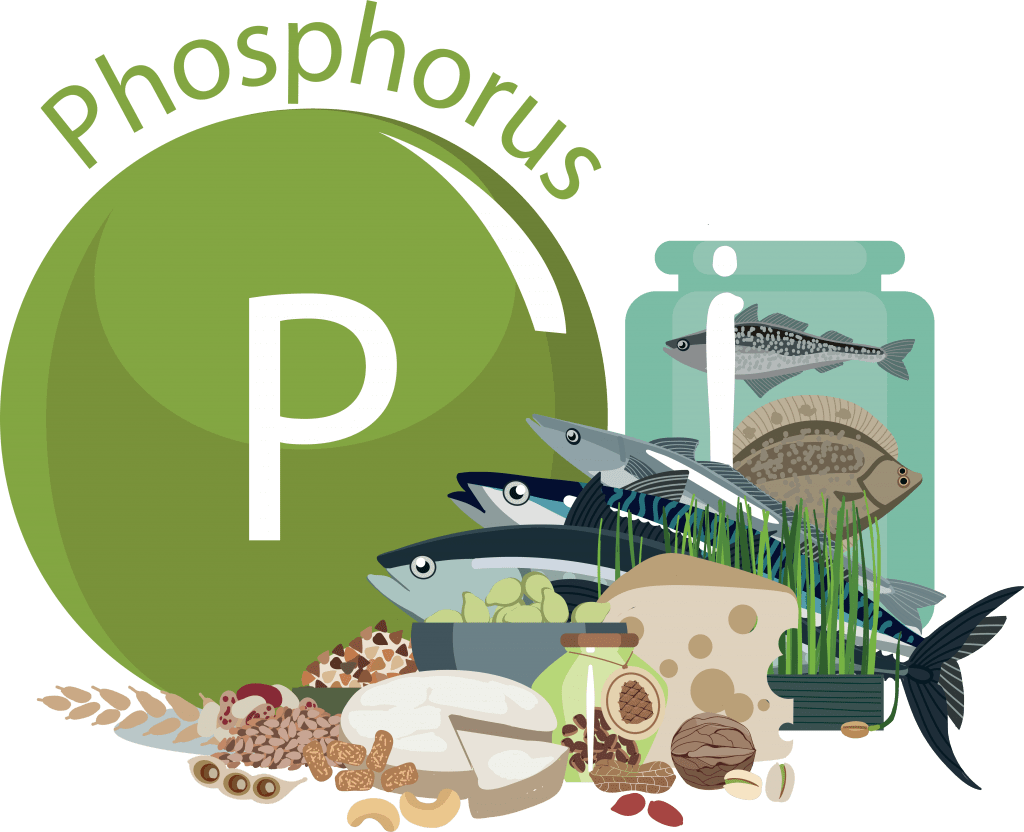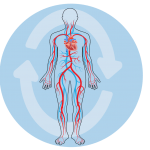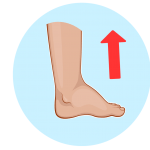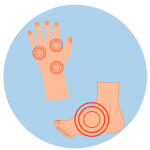
The Many Roles of Phosphorus aka phosphates
Phosphorus also known as phosphates provide a strong structural foundation to bones and teeth. It is involved in cell membrane formation. Moreover, the element helps in activating enzymes, and maintaining the pH level of blood within a normal range.
In addition to these vital functions, phosphorus is also responsible for regulating the normal function of nerves and muscles, including the heart. Furthermore, it is a building block of our genes, making up DNA, RNA, and ATP, which is the body’s major source of energy.
It is important to note that the levels of phosphorus in the body are tightly regulated by the kidneys, bones, and intestines. An imbalance in phosphorus levels can lead to a range of health complications, including soft tissue calcification, bone density loss, and muscle weakness.
Why is Phosphate is essential for our body?

Metabolism
Essential to metabolism as they are involved in a variety of important biochemical reactions in the body. They play a critical role in the production and storage of energy in the form of ATP (adenosine triphosphate). Additionally, phosphates are a crucial component of many enzymes that help to regulate metabolic processes and catalyze chemical reactions. They are also important in the formation of DNA and RNA, which are involved in the genetic expression and control of metabolism.

Circulatory System
One of its significant functions is aiding in blood formation. This process is crucial for many important bodily functions, including oxygen transport, energy production, and immunity. Phosphorus works alongside other minerals like iron, copper, and zinc to help produce red blood cells, which carry oxygen to the body’s tissues. It helps to regulate and support the growth of blood cells, allowing them to develop and multiply.

Heart Health
Phosphates play a crucial role in this process by facilitating the production of ATP, the energy currency of the body, which is needed for muscle contraction and relaxation. Additionally, phosphorus helps in the regulation of calcium levels in the body, which is another essential mineral needed for proper muscle function.

Brain Power
Phosphates play a pivotal role in optimizing cognitive activity and brain function. It has been found that adequate consumption of phosphorus can improve memory, learning capacity, and cognitive performance. Furthermore, it has been suggested that phosphorus deficiency may be linked with cognitive decline in the elderly.

Digestive TRact
Phosphorus is an essential mineral that plays a crucial role in muscle tone in the stomach and intestines.
Additionally, It aids in the production of hydrochloric acid, a vital component in healthy digestion. Hydrochloric acid works to break down food particles and kill harmful bacteria in the stomach. Without proper levels of phosphorus, this process can be compromised, leading to digestive issues such as acid reflux, indigestion, and bloating.
Symptoms of Phosphate deficiency

Swelling
Phosphorus can contribute to edema by disrupting the balance of electrolytes in the body, leading to increased fluid retention. Additionally, phosphorus has been shown to increase blood pressure, which can further contribute to fluid accumulation in the tissues.

Bowel Movements
A lack of phosphorus in the body can cause constipation, a condition characterized by infrequent or difficult bowel movements. This occurs when the muscles of the digestive system become weak or are unable to contract properly, leading to the buildup of waste material in the colon. Additionally, a deficiency can also lead to other bowel-related complications such as diarrhea, abdominal pain, and bloating. These symptoms may occur due to the altered gut microbiome and imbalanced intestinal flora caused by the lack of phosphorus.

Sleep Disturbance
Studies have shown that low levels of phosphorus in the body can result in insomnia or restless sleep patterns. Phosphorus plays an important role in promoting relaxation and reducing muscle tension, which helps promote better sleep. In addition to this, it is critical for the production of adenosine triphosphate (ATP), one of the primary sources of energy for the body.

Muscles damage
Without adequate levels of phosphorus in the body, the ability of the muscles to contract and relax can be compromised, leading to weakness, fatigue, and even muscle damage.

MOod
A deficiency of phosphorus can lead to an imbalance in the levels of neurotransmitters, causing irritability. It can also affect the production of ATP, the energy currency of cells. This can result in fatigue and lethargy, making one more susceptible to irritability and mood fluctuations.

Sensations
Phosphorus deficiency can lead to nerve damage, which in turn can cause tingling and numbness in the extremities. Additionally, low levels of phosphorus may affect the body’s ability to utilize other essential minerals such as calcium, which can also impact nerve function.
Needed to Utilization
Interaction
Phosphorus interacts with antacids and laxatives





